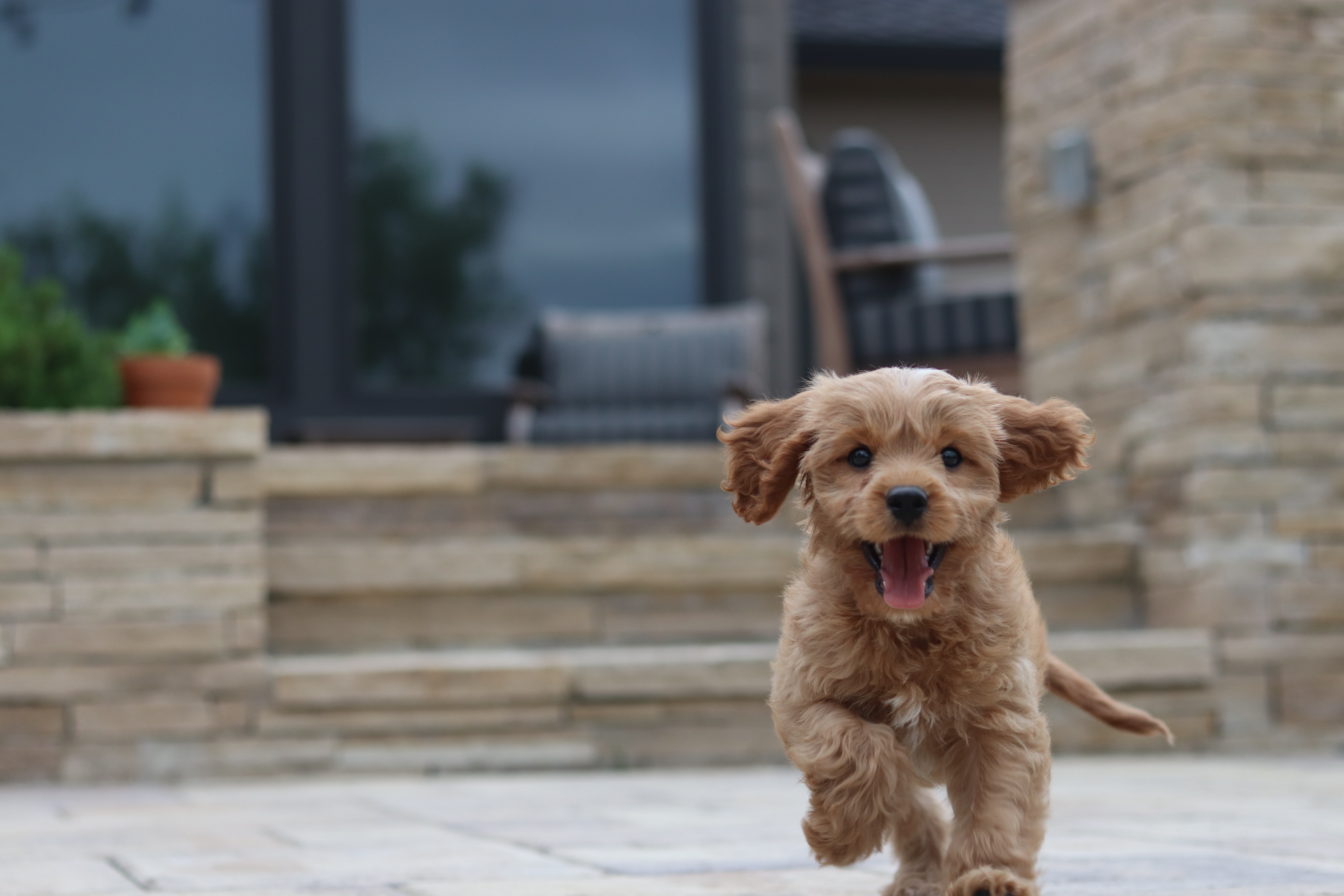Congratulations on your new puppy! This is such a rewarding and exciting adventure you have embarked on – no pun intended. There is a lot for both you and your puppy to learn when it comes to training, so here are the puppy training basics 101 that you need at this happy time.
When Should Puppy Training Start?
Once a puppy’s eyes have opened, they quickly become quite independent. Socialization, handling, and training should begin as early as possible so that your puppy has a great head start on the path to good behavior. Once you are able to bring them home at 8 to 9 weeks, they are more than ready to jump right into training.

What Should You Teach Them?
Commands
Start them off with the most important basic commands like “sit”, “stay”, and “down”. These are great beginner commands for a few reasons. First, they are easy to lure your pup into using small treats–holding it just above their nose and moving it backwards gets them to sit, and holding the treat on the floor and sliding it forward encourages them into the “down” position. From there, you build their listening abilities and work them up to “stay” or “wait”. Knowing these three tricks lays a solid foundation on which to build the rest of their training repertoire since many of the more advanced tricks are easier to do if you can prep them with one of these positions. Remember, their attention spans are incredibly short at this age, so your training sessions will have to be short as well–just a few minutes at a time, and only about 15 minutes total each day. However, their brains are also like sponges and will quickly pick up on these new tricks.
Potty Training
It’s in your best interest to get straight to work on potty training; the longer you allow your puppy to rely on potty pads, the harder it will be to wean them off of the habit of going to the bathroom inside. Immediately get into a punctual schedule of bathroom breaks. If you’ve adopted your dog at 8 weeks old, you should be bringing them out to go potty once every two hours. You will gradually work your way up to longer periods between breaks, but due to their tiny bladder size, they won’t be able to hold it much until they grow bigger. A good rule of thumb is to correlate the hours between breaks with their age–at two months, they can hold it for two hours, while at four months they should be able to wait four hours.
Socialization
The whole world is new to your puppy, and it is your job to make sure they experience as many things as they can now before they get too old and become fearful of new things. Familiarize them with different sounds and sights; introduce them to as many people and animals as you can. Show them objects that they will encounter in everyday life, and things they may only see on occasion. The more comfortable you can make them with these experiences now, the fewer problems you will have down the line. Note that your puppy needs to have all of their vaccinations before they can be safely brought around other animals.
Puppy training can be time-consuming and quite frankly, a little exhausting. If you would like some professional help, contact Gulf Coast K9 Dog Training of Bradenton. From puppy training to refresher courses for mature dogs, we are committed to the health and happiness of your dog.




